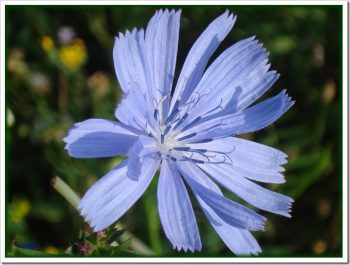Archive for April, 2011
Il Nuovo Decespugliatore Posted by Serena on Apr 30, 2011
As I mentioned in my last blog "Facciamo gli erbi" the grass and weeds on the orto (vegetable garden) are growing a vista d’occhio (before our eyes). As we don’t have a cow or a goat the only practical way of keeping 500 square meters of land under control is a decespugliatore (strimmer or brush…
Facciamo gli Erbi Posted by Serena on Apr 28, 2011
At this time of year nature is suddenly waking up. Every day is greener, and l’erba nell’orto cresce a vista d’occhio (the grass in the vegetable garden grows before your eyes), much to the desperation of my husband Geoff who has to cut it! However, it gives me a lot of pleasure to see the…
Poco Posted by Serena on Apr 25, 2011
Poco – a little word that makes a big difference when used correctly! It can be translated as ‘little’, ‘short’, ‘few’, ‘not much’, ‘not very’. N.B. when used as an adjective it changes gender and number according to the noun, e.g. poco sole – not much sun, pochi giorni – a few days, poca pasta…
Colomba Pasquale Posted by Serena on Apr 22, 2011
Our traditional Easter cake is called la Colomba (the Dove). Similar to the Christmas Panettone in flavor and consistency, but baked in the form of a stylized dove, it is a symbol of peace. Although it’s the most popular Easter cake eaten in Italy, the tradition of la Colomba isn’t that old as it was…
Mancare Posted by Serena on Apr 19, 2011
The Italian verb mancare means ‘to be lacking in’ or ‘to be missing’. It is an important and useful verb which is well worth studying because we use it a lot in everyday conversation. 1. ‘to miss’ someone or something’ is expressed in the following way in Italian: mi manca la mia famiglia – I…
Quiz – Nomi Collettivi – le soluzioni Posted by Serena on Apr 15, 2011
Here are the correct answers to my quiz ‘Nomi Collettivi’ tante persone (lots of people) – una folla tanti alberi (lots of trees) – un bosco tanti cantori (lots of singers) – un coro tante mucche (lots of cows) – una mandria tante navi (lots of ships) – una flotta tanti pesci (lots of fish)…
Quiz – Nomi Collettivi Posted by Serena on Apr 12, 2011
Nomi collettivi – collective nouns are used to indicate a group of people, animals, or objects. For example: ‘un aranceto’ is a group of orange trees, or an orange grove; ‘un complesso’ is a group of rock musicians, or a rock band, e così via (and so on). Now try and match the descriptions below…




